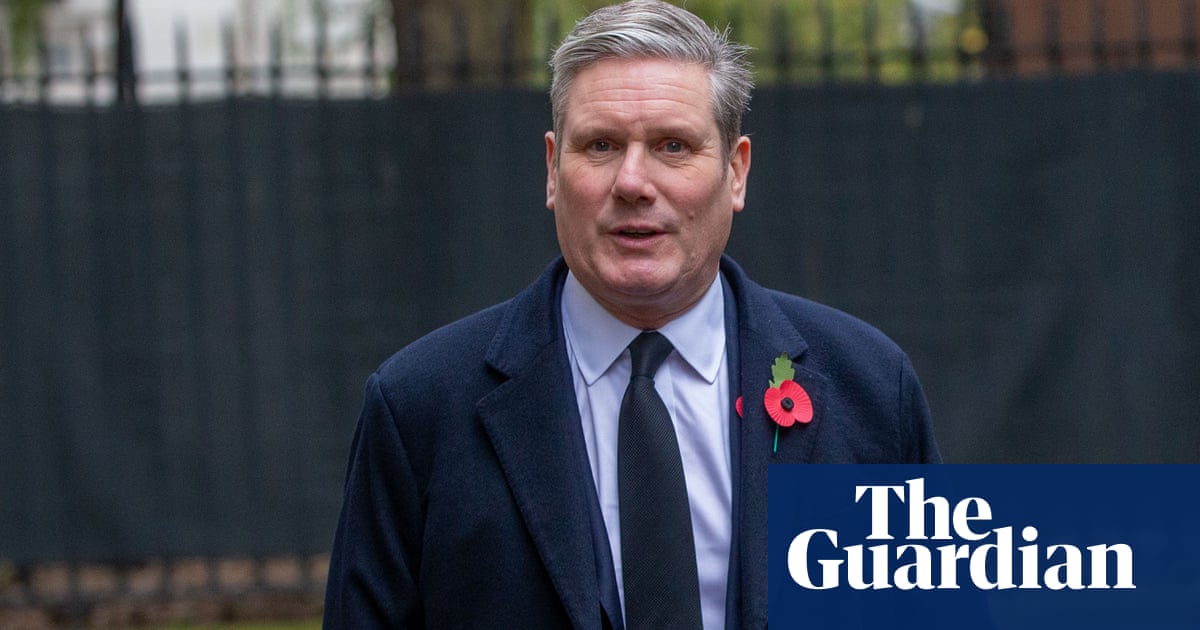
Keir Starmer is under pressure to delay plans for a radical overhaul of Labour’s leadership election rules amid resistance from key trade unions.
Senior Labour sources said Starmer would consider putting the proposals – which would tear up the system used to elect himself and Jeremy Corbyn – to the party’s governing body on Friday , even without assured union support. It came after unions asked for more time to consult on the changes.
If the majority of trade unions decide to oppose them, Starmer risks being defeated on the floor of Labour conference, beginning this weekend.
The Guardian understands that Unite, one of the most powerful unions affiliated with Labour, told Starmer at a meeting on Wednesday that he should delay any vote on a return to the electoral college system of voting, which is fiercely opposed by the party’s left.
“Everyone was agreed on that point,” another union source said. “Each union has a different approach to these ideas but in principle we do not want to be bounced into them. Keir was very much in listening mode.”
Starmer has argued that switching to an electoral college system to decide future party leaders will give greater sway to millions of trade union members, but some on the left of the party have said it would ignite a “civil war” and hand more power to MPs at the expense of ordinary members.
The move would be a return to Labour’s old system under which MPs, party members and trade unions each had a third of the votes for a new leader.
It was abolished by Ed Miliband in 2014 in favour of giving each member of the party and its affiliates one vote on any candidate on the ballot paper. Candidates must acquire the support of 10% of MPs plus some support from constituency parties and trade unions to get on the ballot.
Starmer met union leaders to try to persuade them to back the proposals on Wednesday lunchtime, when the Guardian understands the Unite delegation argued that he should delay the changes even if it meant organising a special conference session to approve them later.
The Labour leader told the meeting he would need to time to consider whether a delay was acceptable, according to two sources. Starmer is likely to consider whether to press ahead with some aspects of reform – such as making it more difficult to de-select MPs – and abandon the more controversial leadership election proposals, at least temporarily.
In a statement after the meeting, Starmer confirmed there had not been consensus, but said it was a “positive conversation” which would be continued in the coming days.
“The principles are important and we have to look at how we need to change to win again,” he said.
“I said yesterday this was never a take it or leave it conversation. I am continuing to take suggestions and have discussions about how we do everything we need to in order to make the Labour party the party of working people again.”
During the discussions, key unions including Unite, Unison and Usdaw are said to have told Starmer they were open to discussion about rule changes for leadership elections but felt blindsided by the proposals. GMB – another key player – was not in the room because of a prior commitment by its general secretary, Gary Smith.
One union source said Unite remained opposed in principle to a return to the electoral college but said its new general secretary, Sharon Graham, wanted time to build a consensus on any changes.
Any delay is likely to mean Starmer swerves a difficult confrontation with leftwing groups including Momentum, which had promised to attempt to disrupt the changes at conference.
However, a retreat from the changes on which Starmer has staked a significant amount of political authority would be likely to raise questions about why the fight was picked.
Graham said the plan was “deeply disappointing” and urged MPs to oppose it. “Unite believes in democracy and this move to reduce the entire membership to one-third of the vote while inflating the votes of MPs to one-third is unfair, undemocratic and a backwards step for our party,” she said.












